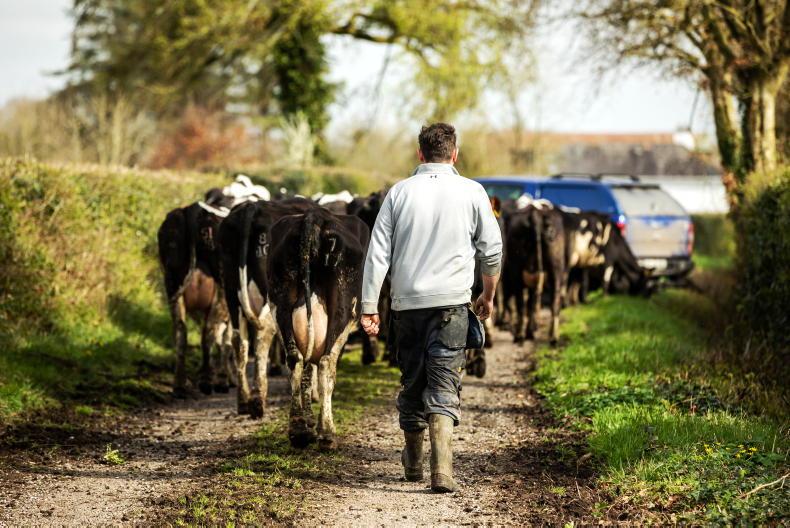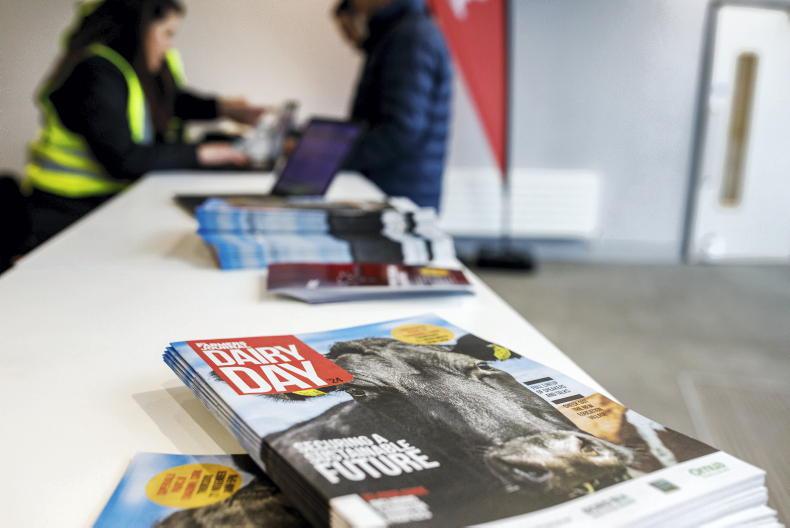The chairs of Lakeland Dairies and Dairygold have warned that milk processing plants could have to shut down if the nitrates derogation is lost and farmers have to revert to a maximum stocking rate of 170kg organic N/ha.
“If, for talk sake, it went to 170[kg], milk supply fell off; close plants - that’s not a decision anyone wants to make,” Niall Matthews of Lakeland Dairies said.
“But if you want to keep the business from going bankrupt, you’d reduce the processing footprint to match supply. That’s not where we want to go,” he told farmers at the Irish Farmers Journal’s Dairy Day in Páirc Uí Chaoimh on Thursday.
At most individual farm levels, there is profit to be made farming in derogation over and above farming below the 170kg N/ha, he said.
Dairygold chair Seán O’Brien also confirmed that the co-op would have to close plants.
“You’d have to shut down the plants. The shed at home that was built for 100 cows and if there’s only 80 inside, you’re still depreciating out them assets. You’re talking 20% or 23% down on your net income at the end of the day. It’s there in black and white,” he said.
Milk supplies
When asked what milk supplies would look like if it the derogation was cut and farmers had to farm at 170kg N/ha, O’Brien said milk supplies would drop.
“At 170kg N/ha, you won’t get the milk that’s there today, without a doubt. We’d be firm on that now.

“It might come again, it would come back and then are we going to change from grass-based milk production or are we going to follow trends into a higher-cost production?” he said.
He added that over 65% of the milk supplied to Dairygold is from derogation farms.
Arrabawn chair Edward Carr said that 40% of the milk supplied to Arrabawn is from derogation farms.
“It has a different impact on all co-ops. A lot of those [Arrabawn] farms are still traditional family farms, other enterprises can be dropped, if it comes to that.
“From the country’s point of view, we need to retain the derogation. [Losing] it wouldn’t have the same impact on our co-op compared to other co-ops.”
Niall Matthews said that 40% of the co-op’s southern supply is from derogation farms and that these farmers are supplying at least 60% of the Lakeland milk pool.
“Monaghan has serious number of derogations, not big farms. If it went to 170kg, it would cause a cliff-edge fall in milk supply. It might make a recovery over time, lads would go into a higher-yielding system - we don’t think we want to go there, but the initial [impact] would be a cliff-edge drop,” he warned.






 This is a subscriber-only article
This is a subscriber-only article










SHARING OPTIONS: